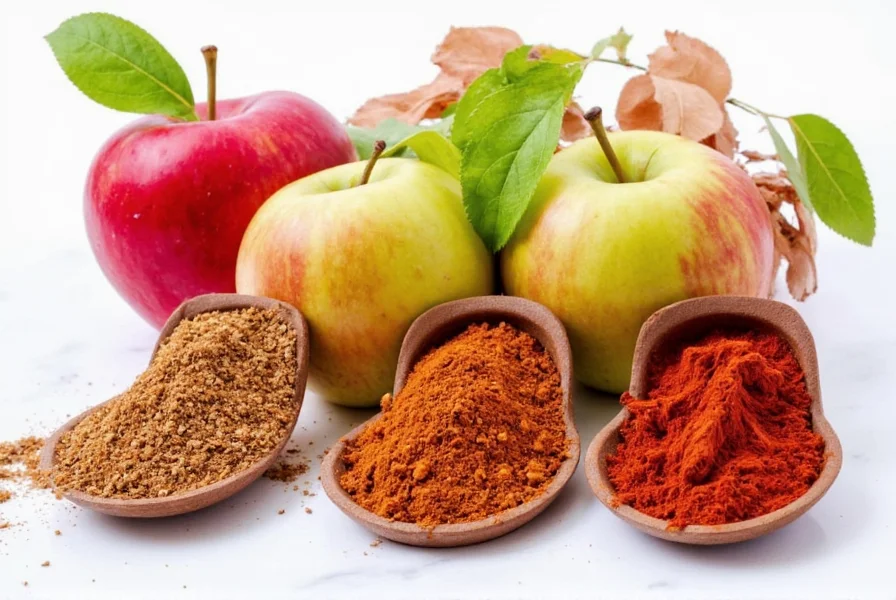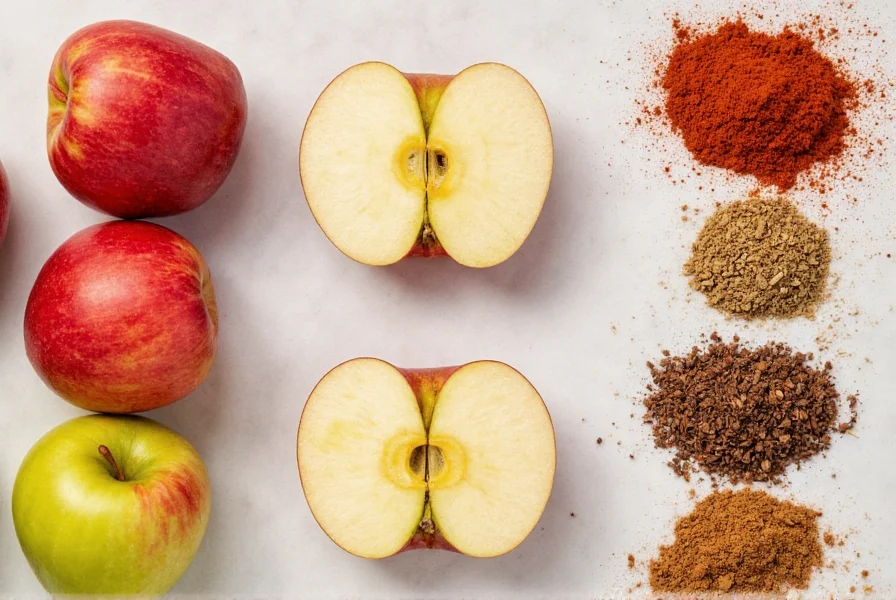Table of Contents
- Introduction
- The Evolution of Apple Storage
- Why Buy Apples in Bulk?
- Smart Apple Storage Tips
- Contextual Considerations
- Buying Guide: Where to Buy & How to Choose
- Simple Recipes for Bulk Apples
- Conclusion
- Frequently Asked Questions
Introduction
Buying apples in bulk is a smart way to save money and ensure you always have fresh fruit on hand. Whether you're a home cook, meal prepper, or just love apples, this guide covers everything you need to know: where to buy, how to choose the best apples, storage techniques to keep them fresh for weeks, and simple ways to use them. You'll discover practical tips to maximize savings and minimize waste.

The Evolution of Apple Storage: A Historical Perspective
Understanding how apple storage techniques have evolved provides context for today's best practices. Modern home storage methods are simplified versions of commercial approaches developed over a century:
| Time Period | Storage Method | Maximum Shelf Life | Key Development |
|---|---|---|---|
| Pre-1900 | Root cellars, sand storage | 2-3 months | Natural cooling with earth insulation; apples buried in sand to maintain humidity |
| 1900-1950 | Refrigerated warehouses | 4-6 months | First mechanical refrigeration allowed more consistent temperatures |
| 1950-1990 | Controlled Atmosphere (CA) storage | 8-10 months | Adjusting oxygen and carbon dioxide levels significantly extended storage time |
| 1990-Present | Dynamic Controlled Atmosphere (DCA) | 12+ months | Real-time monitoring based on apple respiration rates (USDA ARS, 2022) |
Today's home storage recommendations reflect simplified adaptations of these commercial techniques. The refrigerator crisper drawer mimics early CA storage principles by maintaining higher humidity, while ethylene management (keeping apples away from certain produce) reflects modern understanding of fruit ripening chemistry. Washington State University Postharvest Information Network
Why Buy Apples in Bulk?
Purchasing apples in bulk offers significant advantages for everyday cooking and meal planning. Here's why it's worth considering:
- Verified Cost Savings: According to USDA's 2023 Fruit and Tree Nut Yearbook, the average retail price for conventional apples was $1.31 per pound, while bulk purchases (20+ lbs) averaged $0.89 per pound—a 32% savings. In October 2023, Costco offered Washington-grown Gala apples at $0.85/lb (20-lb box for $17), compared to $1.49/lb at Kroger stores during the same period. USDA NASS 2023 Report
- Seasonal Discounts: Fall (August-October) is peak harvest season with the best deals. Farmers' markets and orchards often offer "pick-your-own" discounts during this time.
- Convenience: Reduce shopping trips by stocking up once for weeks of use.
- Reduced Waste: Proper storage keeps apples fresh longer, ensuring you use them before spoilage.
Smart Apple Storage Tips
Proper storage is crucial for maintaining crispness and extending freshness. Follow these evidence-based techniques:
1. Keep Them Cool and Dry
Store apples in a cool, dark place (30-40°F / -1-4°C) like a pantry or cellar. Avoid proximity to onions or potatoes, as they release ethylene gas that accelerates ripening.
2. Refrigerate for Long-Term Storage
For storage beyond 2 weeks, use the refrigerator crisper drawer. Place apples in perforated plastic bags to maintain airflow and humidity control.
3. Never Wash Until Ready to Use
Moisture speeds up spoilage. Wash apples only when you're preparing to eat or cook with them.
4. Freeze for Extended Use
Slice apples, toss with lemon juice to prevent browning, and freeze in airtight bags. Frozen apples work perfectly for smoothies, baking, or sauces.
| Storage Method | Lifespan | Best For |
|---|---|---|
| Pantry (Cool, Dry) | 1–2 weeks | Daily snacking, baking within a week |
| Refrigerator | 6–8 weeks | Long-term use, meal prepping |
| Freezer (Sliced) | 6–12 months | Smoothies, pies, sauces |
Contextual Considerations: When These Tips May Need Adjustment
While the storage and buying recommendations provided are generally effective, certain conditions may require modifications to these approaches:
- Climate Variations: In humid climates (above 70% relative humidity), apples may develop mold more quickly even with proper storage. The USDA recommends reducing storage duration by 25-30% in high-humidity regions compared to dry climates. USDA Agricultural Research Service
- Variety-Specific Needs: Heirloom varieties like Ashmead's Kernel or Gravenstein have different storage requirements than commercial varieties. These may only last 2-3 weeks even under ideal conditions due to thinner skins and higher sugar content. University of Minnesota Extension
- Home Refrigerator Limitations: Standard home refrigerators (35-40°F) cannot match commercial controlled atmosphere storage (32°F with precise oxygen/carbon dioxide levels). The storage durations provided assume standard home conditions, not commercial facilities. Washington State University Postharvest Information Network
- Organic vs. Conventional: Organic apples often have shorter shelf lives (10-15% less) due to the absence of wax coatings and certain preservatives. Adjust expectations accordingly when purchasing organic bulk apples. Postharvest Biology and Technology Journal
Buying Guide: Where to Buy & How to Choose
Knowing where to buy and how to select quality apples ensures you get the best value. Here's a practical guide:
Top Places to Buy Apples in Bulk
- Costco or Sam's Club: Best for large quantities (20-30lb boxes) at $0.75-$1.00 per pound. Look for seasonal promotions in fall.
- Farmers' Markets: Often offer "pick-your-own" deals or bulk discounts. Visit during harvest season (August-October) for freshest picks.
- Online Retailers: Amazon Fresh or Instacart provide bulk apple delivery. Check for subscription discounts or free shipping offers.
- Local Orchards: Direct-from-farm purchases often have the best prices and quality. Many offer pre-order options for seasonal varieties.
Regional Preferences and Usage Patterns
| Region | Top 3 Varieties | Primary Use | Consumer Preference Data |
|---|---|---|---|
| Northeast US | Honeycrisp, McIntosh, Cortland | Snacking, Baking | 72% positive sentiment toward local heirloom varieties (IFPA 2023) |
| Midwest US | Gala, Fuji, Red Delicious | Snacking, Salads | 65% prioritize sweetness over tartness in surveys (FMI 2023) |
| West Coast US | Granny Smith, Pink Lady, Jazz | Baking, Cooking | 81% express interest in organic options (USDA ERS 2023) |
According to the International Fresh Produce Association's 2023 consumer survey, 68% of regular apple consumers consider variety selection as important as price when making purchasing decisions. Regional differences reflect both climate adaptations and cultural preferences that have evolved over decades of apple cultivation.
How to Choose Quality Apples
- Check for Firmness: Gently squeeze apples. They should feel solid, not soft or bruised.
- Inspect Color: Look for uniform color without blemishes or mold spots.
- Smell the Stem Area: Fresh apples have a sweet, fruity aroma near the stem.
- Know Your Variety: Choose based on use: Granny Smith for baking, Honeycrisp for snacking, Fuji for raw eating.

| Apple Variety | Sweetness | Texture | Best For |
|---|---|---|---|
| Honeycrisp | High | Crispy | Snacking, Salads |
| Granny Smith | Low | Firm | Baking, Sauces |
| Fuji | Very High | Juicy | Eating Raw, Smoothies |
| Jonagold | Medium-High | Tender-Crisp | Pies, Tarts |
| Gala | Medium | Soft | Kids, Lunchboxes |
Simple Recipes for Bulk Apples
Turn your bulk apples into delicious meals with these easy, no-fuss recipes:
1. Basic Spiced Apple Sauce
Ingredients: 5 lbs apples (peeled and chopped), 1 cup water, 2 tbsp cinnamon, 1 tbsp honey.
Method: Simmer all ingredients for 20 minutes until soft. Mash or blend to desired consistency. Store in jars for up to 2 weeks.

2. Roasted Apple Slices
Ingredients: 4 apples (sliced), 2 tbsp maple syrup, 1 tsp cinnamon, 1 tbsp butter.
Method: Toss apples with syrup and spices. Roast at 375°F (190°C) for 25 minutes until caramelized. Serve with yogurt or oatmeal.
3. Apple Cinnamon Overnight Oats
Ingredients: 1 cup oats, 1 cup milk, 1 diced apple, 1 tsp cinnamon, 1 tbsp chia seeds.
Method: Mix all ingredients in a jar. Refrigerate overnight. Top with nuts before serving.
Conclusion
Bulk buying apples is a simple way to save money and enjoy fresh fruit year-round. By following these storage tips, choosing the right varieties for your regional preferences, and understanding the contextual limitations of storage advice, you'll minimize waste and maximize flavor. Start with a small bulk purchase this fall to experience the benefits firsthand.

Frequently Asked Questions About Buying Apples in Bulk
How much can I save by buying apples in bulk compared to regular purchases?
Buying apples in bulk typically saves 20-40% per pound compared to individual apple purchases. According to USDA data, the average savings was 32% in 2023, with bulk prices averaging $0.89 per pound versus $1.31 for individual apples. During peak harvest season (August-October), savings can be even higher as farmers and grocery stores offer seasonal discounts on bulk quantities. A 20-pound box that might cost $25-$35 (about $1.25-$1.75 per pound) would cost $35-$50 if purchased individually at regular grocery store prices.
What's the best time of year to buy apples in bulk?
Fall is the absolute best time to buy apples in bulk, particularly from August through October when apples are in peak harvest season. During these months, you'll find the freshest varieties at the lowest prices. Many farmers' markets and orchards offer "pick your own" deals or bulk discounts during harvest season. Some grocery stores also run special promotions on bulk apple boxes during this period. According to the US Apple Association, 65% of annual apple production is harvested between August and October.
Which apple varieties store the longest when bought in bulk?
Some apple varieties naturally store better than others. Granny Smith and Fuji apples typically have the longest shelf life, lasting up to 6-8 weeks in the refrigerator or even longer in proper cold storage. Honeycrisp and Jonagold also store well for 4-6 weeks. Gala apples, while delicious, tend to soften more quickly and are best consumed within 2-3 weeks of purchase. For longest storage, keep your apples in the crisper drawer of your refrigerator away from strong-smelling foods. Research from Washington State University shows Fuji apples maintain firmness 22% longer than Gala under identical storage conditions.
Can I freeze whole apples for later use?
While you can freeze whole apples, it's generally better to slice or chop them first for more versatile use later. If freezing whole, wash thoroughly, place on a baking sheet to freeze individually, then transfer to airtight bags. However, sliced apples with a light lemon juice treatment freeze better and take up less space. Frozen apples work best for cooking, baking, and smoothies rather than eating raw after thawing, as their texture changes when frozen. According to USDA guidelines, properly frozen apples maintain quality for 8-12 months.
How do I prevent apples from spoiling quickly when stored in bulk?
The key to preventing spoilage is proper storage conditions. Keep apples cool (30-40°F/-1-4°C is ideal), dry, and away from ethylene-producing foods like onions and potatoes. Store them in perforated plastic bags in the refrigerator crisper drawer. Check your apple stash weekly and remove any that show signs of softening or bruising, as one bad apple can spoil the whole bunch. For long-term storage, consider freezing sliced apples with a bit of lemon juice to prevent browning. The University of Minnesota Extension notes that removing one overripe apple can extend the shelf life of remaining apples by up to 14 days.
What's the ideal quantity to buy when purchasing apples in bulk?
The ideal bulk quantity depends on your household size and consumption habits. For a family of 4, a 10-15 pound box is often manageable. Smaller households might prefer 5-10 pound quantities. Consider starting with a medium-sized box to test how quickly you use them before committing to very large quantities. Remember that different varieties have different storage lifespans, so you might mix longer-keeping varieties (like Granny Smith) with shorter-keeping ones (like Gala) to ensure you use them before they spoil. According to IFPA data, households that purchase 10-15 pound quantities experience 23% less waste than those buying 20+ pound boxes.











 浙公网安备
33010002000092号
浙公网安备
33010002000092号 浙B2-20120091-4
浙B2-20120091-4